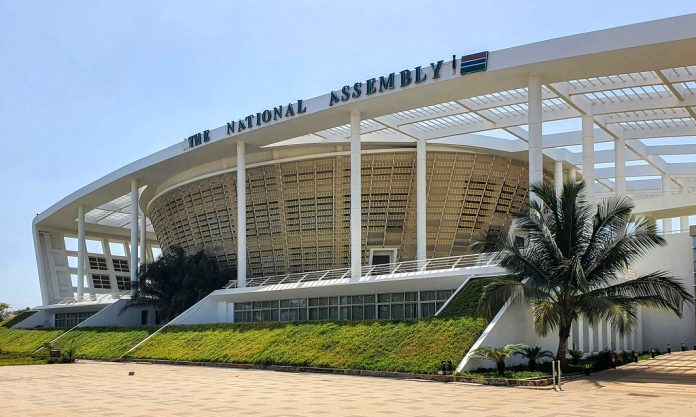By Kebba AF Touray
Secretary to Cabinet Alieu Njie has disclosed that some of the records relating to the implementation of the Janneh Commission’s recommendations are stored in a closed confidential file, a revelation that came during his appearance before the National Assembly’s Special Select Committee probing the assets linked to former President Yahya Jammeh.
Njie, who was summoned to produce specific documents connected to the ministerial committee that followed up on the Janneh Commission’s work, initially stated that his office had no such records. However, under sustained questioning by Counsel Dibba, he admitted that key records were recently found in a classified file labeled “PRC – Private and Confidential.”
“I found it in a closed file. That is what we call PRC,” Njie said. “That is how I discovered [it] this morning.”
Njie, who was appointed Secretary to Cabinet on January 24, 2023, and later had his role fused with that of the Head of Civil Service on November 18, 2024, explained that his office oversees the transmission and follow-up of cabinet conclusions to ministries, including those involving high-level commissions and task forces.
He told the committee that when he received their summons, he conducted a search with his team but initially did not locate any records pertaining to the ministerial committee that oversaw the Janneh Commission’s asset recovery work. He said searches were conducted over two weekends but were limited to standard cabinet files.
“Obviously, when you prepare the cabinet conclusions, it is bind, and that is what we go through. We have the cabinet conclusions, that’s why we extract. But this particular issue, we could not see some of the issues,” Njie explained.
It was only later, he said, that he checked the confidential archives and located documents that had previously been overlooked.
The committee had requested several specific items, including:
- Minutes of cabinet meetings establishing the ministerial committee related to the Janneh Commission
- Membership of the committee
- Minutes and reports of any technical committee reports submitted to the ministerial committee
- Reports submitted by the ministerial committee to cabinet
- All correspondence related to the committee’s work, both internal and external
- Any other records relevant to the implementation of the Janneh Commission’s recommendations
When asked directly by Counsel Dibba whether any effort had been made to verify the existence of such records before responding to the summons, Njie confirmed that they had searched but did not initially review the closed files.
“So you had not checked the closed files at the time of the issuance of the summons?” Dibba asked.
“No,” Njie replied. “But also you know the problem is letters without references are always difficult to check.”
He clarified that multiple documents the committee sought — including the minutes of the cabinet establishing the ministerial committee, reports from the committee to cabinet, and related correspondence — were now confirmed to exist but remain in the restricted confidential file.
As a result of the revelation, the committee issued a 24-hour ultimatum for Njie to submit the identified documents, emphasizing their importance to the committee’s ongoing investigation into assets allegedly acquired illegally by the former president and his associates.
The Janneh Commission, officially known as the Commission of Inquiry into the Financial Activities of Public Bodies, Enterprises and Offices as Pertaining to Former President Yahya Jammeh and Connected Matters, was established in 2017 and submitted its report in 2019. The findings detailed how Jammeh and his close associates acquired vast assets through abuse of office, including land, vehicles, businesses, and foreign currency.
Njie’s admission that key follow-up records on the commission’s recommendations were stored away in confidential files has raised fresh questions about transparency and the state’s institutional memory. It also underscores the difficulty faced by investigators in piecing together the paper trail of asset recovery and financial accountability.
As the committee continues its probe, it remains to be seen what the newly revealed documents will uncover — and whether they will help shed light on the fate of the millions of dalasis in state assets linked to the former president.






















